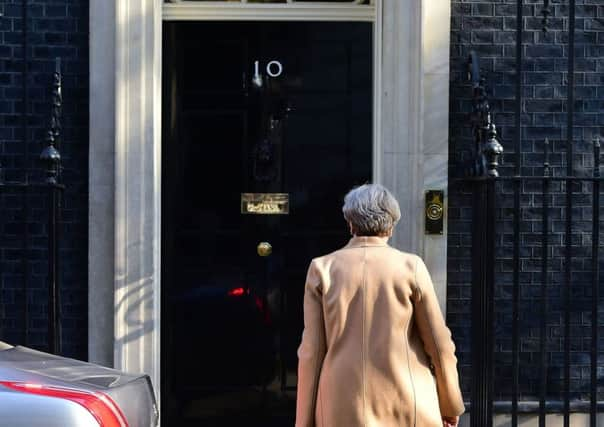General Election needed to stop oppostion parties '˜frustrating' Brexit - May


The Prime Minister, who performed a U-turn by calling for a vote on June 8, said an election would also improve the UK’s position in negotiations with European Union leaders.
Mrs May said the election would give the opportunity for “stability and certainty” during the period of the Brexit process.
Advertisement
Hide AdAdvertisement
Hide AdMPs are today expected to back Mrs May’s demand for an early vote, three years ahead of the next scheduled general election.
Explaining her volte face, Mrs May told BBC Radio 4’s Today programme: “When it came to triggering Article 50, around that time it became clear the extent to which the opposition parties in Westminster were intent on what I would describe as frustrating the Brexit process.
“Because Brexit isn’t just about the letter that says we want to leave, it’s about negotiating the deal, about getting the right deal from Europe.”
She added: “People have a unity of purpose. The public want us to deliver on leaving the European Union and they want us to build that stronger Britain for the future beyond leaving the European Union.”
Advertisement
Hide AdAdvertisement
Hide AdSpeaking to the Sun, Mrs May revealed a concern that the May 2020 election date stipulated by the Fixed-Term Parliaments Act would leave her vulnerable to pressure from Brussels as she neared the end of the two-year withdrawal negotiations in March 2019.
“If we’re negotiating at a point that is quite close to a general election, I think the Europeans might have seen that as a time of weakness when they could push us,” she said. “Now we will be much freer.”
Under the terms of the Fixed-Term Parliaments Act, Mrs May must secure a two-thirds majority of MPs to bring the election forward by three years from the scheduled date of May 2020.
She is expected to secure the backing of the Commons, with Labour supporting her call for an early election.